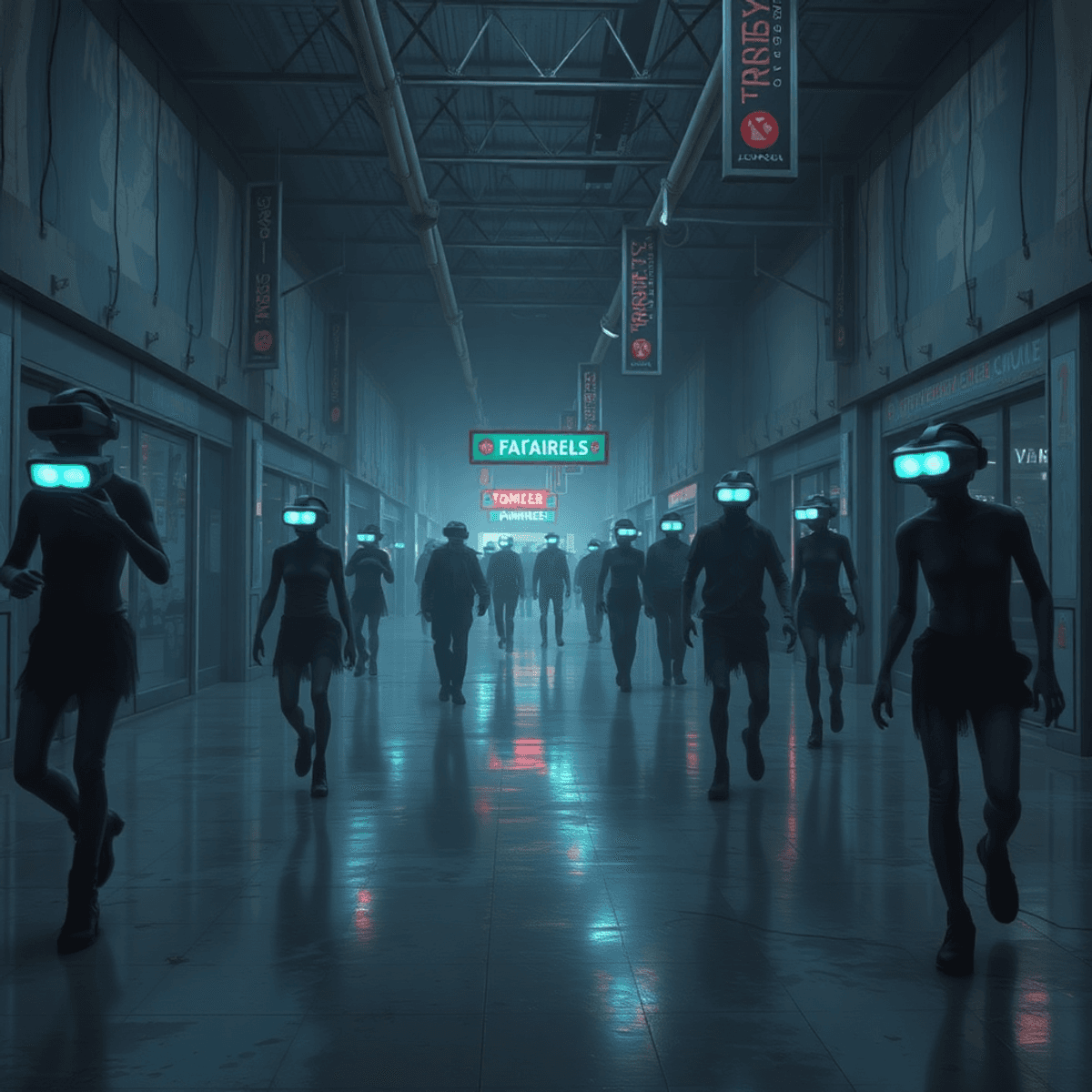
The White Rabbit Virtual Reality Arcade at Merle Hay Mall faced immense challenges due to the mall’s failure to uphold its grand development promises, causing a ripple effect on the arcade’s prosperity. This scenario serves as a stark reminder to business operators of the criticality of obtaining written agreements when leasing spaces, particularly in malls.
White Rabbit Virtual Reality Arcade began with Ben Houk’s ambition to bring a truly unique VR experience to Central Iowans. Houk recognized the growing interest in immersive technology and wanted to create a space where people could explore virtual worlds beyond typical gaming setups. His vision combined cutting-edge VR hardware with carefully curated games and experiences designed to appeal to both casual visitors and dedicated enthusiasts.
The arcade found its first home at Jordan Creek Mall, where it quickly gained traction. The location’s foot traffic and demographic suited White Rabbit’s offerings well. Customers appreciated the arcade’s:
This initial success was fueled by the arcade’s ability to stand out in a mall environment often dominated by traditional retail. White Rabbit became known as a destination not just for gaming but for experiential entertainment, helping establish VR as a viable local business concept. The momentum at Jordan Creek Mall laid the foundation for future expansion and growth ambitions.
Merle Hay Mall presented an enticing opportunity backed by ambitious development plans that promised to transform the location into a rising entertainment hub. The mall management highlighted upcoming attractions, including a new hotel and plans to partner with the local Buccaneers hockey team, aiming to create a vibrant community space. These promises suggested increased foot traffic, positioning the mall as a destination for both shopping and entertainment.
For White Rabbit Virtual Reality Arcade, this vision aligned perfectly with its growth strategy. Ben Houk saw relocating as a chance to tap into new audiences attracted by the prospective developments. The arcade’s unique VR offerings could complement the entertainment-centric direction Merle Hay Mall aimed to take, potentially boosting visibility and customer engagement.
Taking this gamble involved weighing risks against expected gains. Moving from Jordan Creek Mall, where White Rabbit had established a loyal customer base, meant leaving behind stability for uncertain growth. The arcade’s decision reflected confidence in the mall’s plans and an eagerness to be part of what was projected as a revitalized social hub. This move embodied the hope that the synergy between retail, sports events, and hospitality within Merle Hay Mall would generate sustained business growth and elevate the arcade’s profile within Central Iowa’s evolving entertainment landscape.
The Merle Hay Mall’s inability to follow through on its development plans has created a dead mall situation, leading to a significant drop in customer traffic. This decline in foot traffic has had serious consequences for the VR arcade’s business, causing a sharp decrease in revenue that brings it dangerously close to shutting down.
The community’s response became a lifeline for White Rabbit Virtual Reality Arcade amid its financial struggles. A heartfelt Facebook post by Ben Houk reached out to local patrons, explaining the dire situation and asking for support. The post quickly gained traction, with shares and comments reflecting a strong desire to keep the unique VR experience alive in Central Iowa.
Several fundraising initiatives emerged from this online momentum:
These efforts tapped into community goodwill and highlighted how social media can mobilize support rapidly. Customers not only contributed financially but also spread awareness, creating a grassroots movement around preserving a local entertainment gem.
Such creative approaches demonstrate how businesses facing unexpected challenges can leverage digital platforms and community engagement to survive. This phase of resilience showed that even when external circumstances falter, connection with customers remains a vital resource.
Looking back at the experience of White Rabbit Virtual Reality Arcade at Merle Hay Mall, we can learn important lessons about running a sustainable business.
The mall’s development plans included commitments that were not fulfilled. This had a negative effect on the arcade’s ability to thrive as a business, causing unexpected challenges and setbacks.
This experience shows us how crucial it is to have written agreements when renting commercial spaces. Clear terms and conditions in these agreements can protect businesses from potential risks and uncertainties.
By reflecting on these aspects, business operators can learn valuable lessons from the VR arcade’s journey at Merle Hay Mall. It highlights the significance of trust, transparency, and carefulness in lease agreements to ensure long-term success and sustainability in a competitive market.
The challenges faced by White Rabbit Virtual Reality Arcade at Merle Hay Mall are a reminder of the difficulties in the business world, especially for unique ventures like VR arcades. However, their story is also one of resilience and community support, showing how these factors can contribute to survival in tough times.
For those looking to start their own VR arcade, this serves as a valuable lesson. Choosing the right location is crucial, and securing written agreements with landlords should be a top priority. These steps can help ensure a stable and successful operation in the long run.

